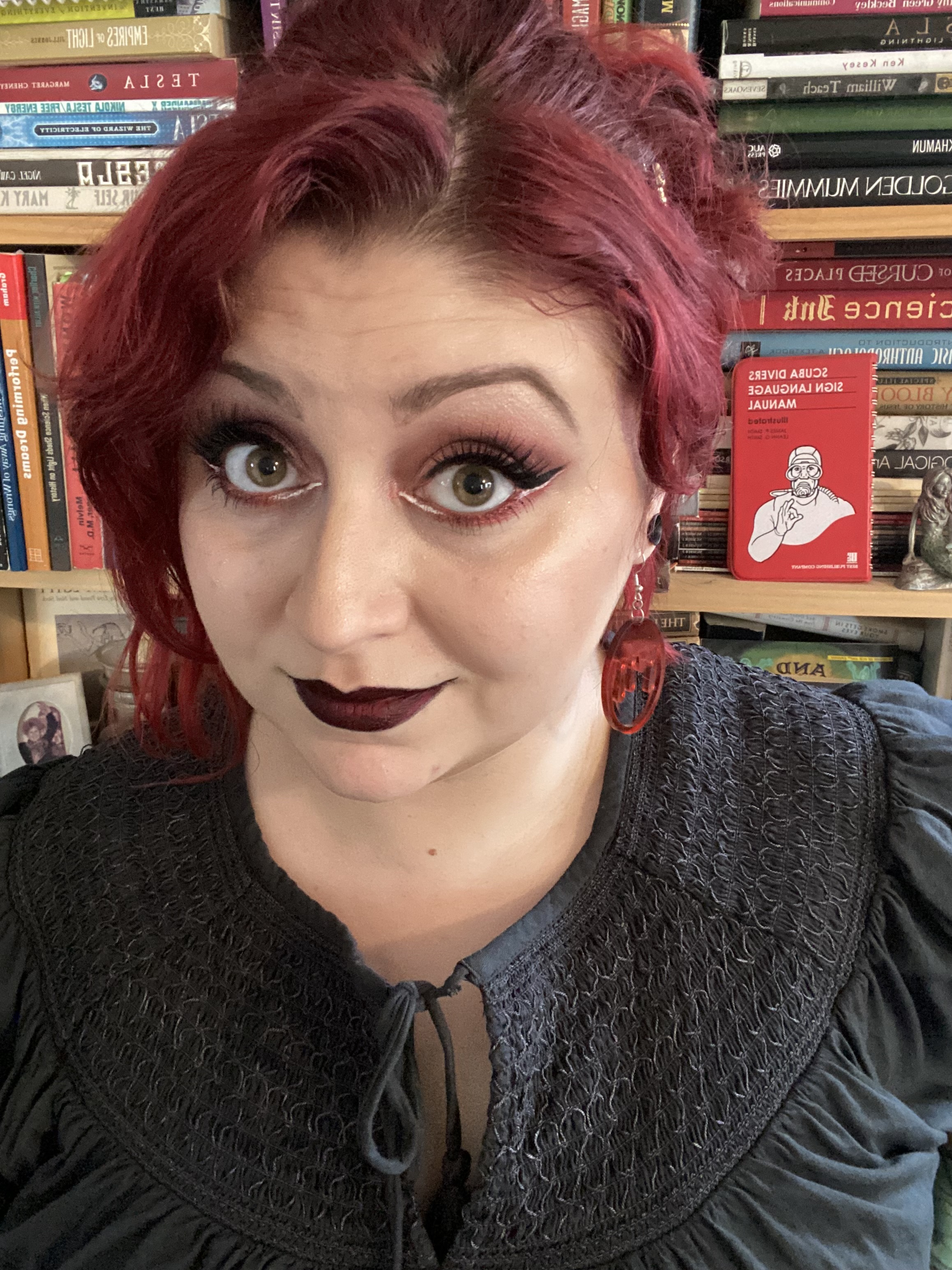HGO Spotlight On: Business Intelligence Manager Ariel Ehrman
Ariel Ehrman is a self-described data nerd who has always loved to dig, whether it’s out in the sand in search of artifacts that reveal pieces of history, or in front of a computer combing through numbers to piece together a story told by ticket sales.
It was five years ago that Ariel transitioned from her career as an archaeologist into her new era with Houston Grand Opera—starting as a Data Coordinator before taking her current position, Business Intelligence Manager. Ariel is a critical member of the company’s Business Intelligence Department, which HGO General Director and CEO Khori Dastoor introduced to the organization in 2021.
It is Ariel’s job to help the company make informed business decisions while reaching the widest possible audience. “I’ve always had a deep love for the arts, so being able to do something that supports them is really exciting,” she explains. “I like to say that we do the nerdy stuff that keeps the artsy stuff going.”
Here's Ariel on her life and career, in her own words:
I have an archeology background, so I worked with data in some capacity there first. I worked in archeology, going on a couple of different excavations overseas and in Texas and Mississippi. And after a certain point, I realized that, for me and my body, digging in the dirt all the time was not sustainable. But I still wanted to be involved in analysis and research and things of that nature.
When a former HGO employee told me about the Data Coordinator position and said, why don’t you apply, I just went for it. And I’m still here five years later. But I think it started with the kind of information you can glean from data in an archeological setting. And that transfers to anything else you’re looking at data for, including how the opera is doing.
Overall, what we do is, we look at trends over time—who’s buying tickets, which productions are selling the most, how it lines up with our marketing efforts, that kind of thing. We use that data to figure out what else we can do to bring new people into HGO, to be more accessible to the community. We also look at contribution trends. We look at the numbers, make graphs and visuals of that data to see those trends over time, and then also look at what we’re doing that’s new, that had X, Y, or Z effect on the data.
This work takes a certain amount of creativity, which people don’t usually think of when they think of data and data science. And you have to be really good at communication, because you’re not just thinking about what the numbers say, you’re telling a story. You have to communicate in an accessible way, especially to people who aren’t necessarily going to have a statistics vocabulary, how what we’ve found applies to marketing, to philanthropy. We want to make sure it’s understandable to anyone, not just someone who’s deep in the data all day.

I didn’t know a whole lot about opera before coming to HGO, but I was familiar with the genre. Someone recently made the point that opera is one of the only art forms that combines every element of the performing arts. You have elements of theater, singing, the orchestra, dancing, and it’s all combined into one art form, which is cool. Of all the operas I’ve seen, I really enjoyed Die Fledermaus, because it’s silly, fun, self-referential, and just kind of peak opera. A woman disguises herself as someone else to flirt with her husband to prove that he’s cheating on her, and then things just get sillier from there.
Saul, I didn’t expect to be so emotional about. It didn’t just have these themes of what does virtue mean, but also told the story of this man who was kind of losing his mind and the tragedy surrounding that. That was an interesting production. It was like, oh, opera can be weird. The classics are great too, but I like the out-of-the-box ones a little bit more.
I love saying we have singing elevators, because every once in a while, I’ll hear a singer rehearse in the elevator as it’s going up or down. There was one morning when I walked into the elevator, and our props director was holding a fake severed head in her hands. She was just like, “Oh, I had to fix his ear,” because the ear had torn. I think that was also for Saul, actually.
I’ve always been a giant bookworm. I love all kinds of art, whether it’s movies or books or opera. Queerness and disability in cinema, especially in horror, is interesting, too. I’m passionate about disability justice. A lot of the nonfiction I’ve been reading lately is about how it’s not just about getting legal rights, but also changing the way society thinks about disabilities. Because there’s physical and mental stuff that people deal with, whether it’s neurodiversity or a mental condition or a physical condition, and you can’t always tell whether a person is disabled just by looking at them.
Over the five years I’ve been at HGO, seeing us pivot toward being a more data-driven organization has been exciting. We’re constantly trying to make our data more robust, which helps us understand our audiences better. And the better we understand our audiences, the happier they are. I’m really happy to be part of that.
For more of HGO Spotlight On Series read Part 7.